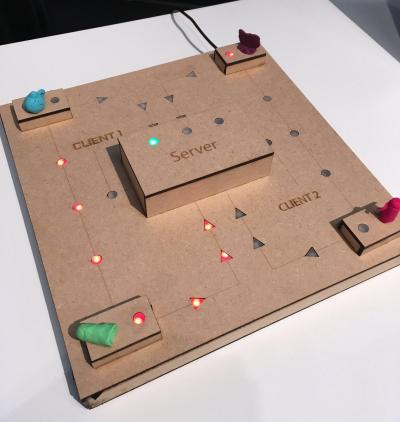The Technology Usability Lab in Privacy and Security (TULIPS) brings together a diverse set of students and researchers interested in understanding and improving the usability of security and privacy technologies. The lab is part of the University of Edinburgh's Security and Privacy group.
Research Projects

PhishEd: Automated Phishing Feedback for End-Users
Adam Jenkins, Tarini Saka, Nadin Kokciyan, Kami Vaniea
Phishing training is typically focused on general threats and is determined by the training provider. In this project we look into providing feedback and training when a user reports a potential phishing message. The idea is that by giving automatic feedback to users about a specific message they are concerned about, we can: give them timely advice, provide useful specific information about threats they actually see, and change the act of phishing education into helpful feedback rather than an employer mandated activity. The project uses a combination of AI and human factors research to process provided messages and provide helpful advice that is written in a language accessible to users.

Software Updates
Adam Jenkins, Yasmeen Rashidi, Kami Vaniea
Updating software is one of the best ways to keep a computer safe, yet many people -- including system administrators -- choose not to install updates in a timely maner. This work explores the reasons behind avoiding updates for both end users and system administrators.

Phishing Human Factors
Sara S. Albakry, Kholoud Althobaiti, Nadin Kokciyan, Maria Wolters, Kami Vaniea
Reading a URL is one of the key abilities necessary for identifying malicious communications, but many people cannot accurately read a URL and predict where it will go. This happens for several reasons, URLs are naturally complex to read, visually identical characters can easily confuse a person, and for some URLs, such as shortened ones, it is physically impossible to predict the destination from simply reading the text due to redirection.

Developer Centered Security and Privacy
Mohammad Tahaei, Kami Vaniea
Developer-focused interfaces need to be designed to be usable, minimize accidental error, and generally support the workflow of users. When these principles are not taken into account, it becomes easy for even highly skilled developers to make mistakes. In this project we explore different aspects of how developers interact with the security and privacy aspects of their work.

Chatty Factories
Adam Jenkins, Dave Murray-Rust, Kami Vaniea
Factories of the future may be able to reconfigure themselves based on how their products are used and what their consumers most need. Manufactoring systems are characterised by a multitude of interconnected procedures that include many discrete, highly specialised and human intensive activities, such as: consumer research, concept design, engineering design, prototyping, and manufacturing operations. This project looks at how we can use information collected by devices themselves to support rapid redesign and manufacture in a way that produces better products while still being respectful of privacy rights of users.

Internet of Things (IoT) Awareness
Kami Vaniea, Nicole Meng
Consumers are generally concerned about their privacy when using Internet of Things (IoT) devices. This project explores different ways to help people better understand the implications of their "things".

Security Games
Kami Vaniea
Topics in computer security, such as firewalls, can seem inaccessible or very difficult to beginners. That perceived inaccessibility is a serious problem at a time when we need to be attracting more people of all types into the area of computer security. In this project we explore the use of educational games as a way of both teaching about computer security concepts as well as creating controlled spaces were we can test new security technology approaches.
